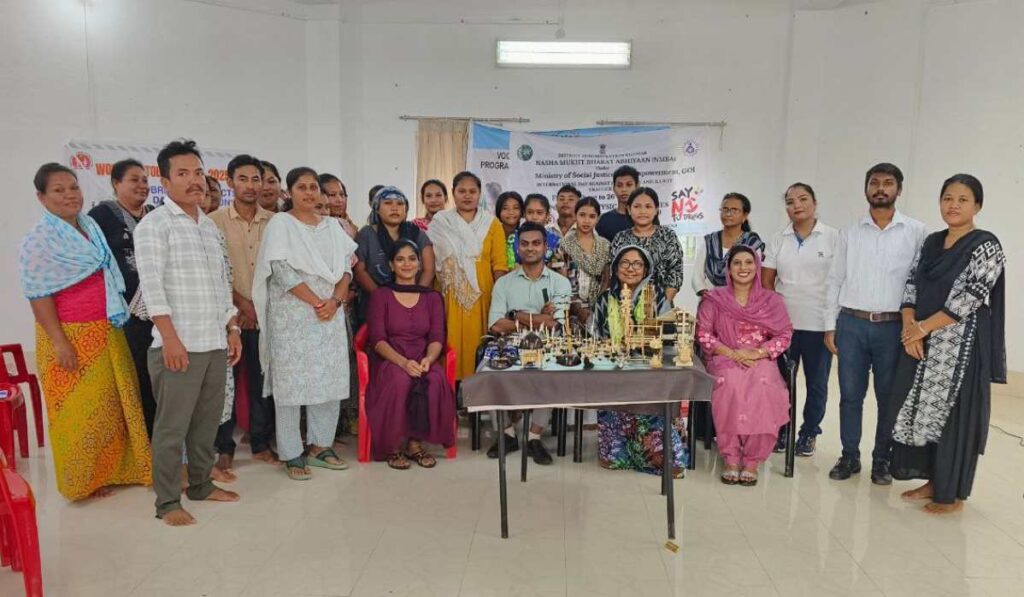Rohit Kumar
Sri Vijaya Puram, 09 June 2025
An awareness program focusing on the dangers of substance abuse and tobacco consumption was conducted on 4th June 2025 at the EOC Hall, Kamorta, as part of the Nasha Mukt Bharat Abhiyan (NMBA), an initiative of the Ministry of Social Justice and Empowerment. The event also aligned with the observance of World No Tobacco Day.
Dr. Shabnam Salim, Medical Officer (Homeopathy), CHC Nancowry, delivered an informative session highlighting the harmful effects of drugs, tobacco, alcohol, and opioids on the human body. She stressed the importance of leading a substance-free life and urged the youth and villagers to channel their energies into creative and productive pursuits.
The session placed special emphasis on the significance of education and encouraged school dropouts in the audience to consider rejoining the academic stream or participating in sports and vocational training instead of falling prey to addiction. The event also marked the concluding session of the vocational self-development training on Traditional Nicobari Handicrafts.
The program was attended by prominent local dignitaries, including Aysha Majid, Chairperson of the Tribal Council, Kamorta; BDO Mr. Mohammed Yunus M; and Ms. Kalyani, Mukhya Sevika from the Social Welfare Department. A yoga demonstration was also conducted by Ms. Rajamani, Yoga Instructor at CHC Nancowry, promoting wellness and holistic health.
Dr. Nirmal Kumar Bajpai, Medical Officer (In-Charge), CHC Nancowry, supervised the proceedings and ensured the event was well-coordinated and impactful.
The drive underscored the severe risks of teenage drug use—ranging from academic setbacks to long-term physical, mental, and social issues. Participants were made aware that substance abuse not only harms individuals but also negatively affects families, communities, and the broader society.
Tobacco consumption, both direct and passive, was identified as a major public health concern. Villagers were educated about its life-threatening consequences, including lung cancer, chronic bronchitis, heart disease, strokes, and increased risk of heart attacks.
The program concluded with a strong message advocating for a drug-free and tobacco-free lifestyle, especially among the youth, to build a healthier and more resilient community. (Story Based on PR)

